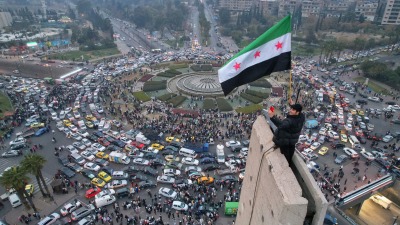Negotiations Underway for Gas Turbines in $7 Billion Qatari-Led Energy Initiative in Syria

Discussions are currently taking place between Syrian authorities and the American company General Electric Vernova, along with Germany's Siemens Energy, regarding the supply of gas turbines as part of a $7 billion initiative to revitalize the energy sector in Syria.
This extensive project is part of broader international efforts to restore Syrian infrastructure that has suffered extensive damage due to years of conflict, spearheaded by the Qatari firm Power International Holding.
The initiative involves the construction of four gas-fired power plants with a combined capacity of 4,000 megawatts, as well as a solar facility with a capacity of 1,000 megawatts. There are also plans for potential collaboration on enhancing Syria's essential electricity infrastructure.
Siemens Energy has expressed its commitment to stabilizing energy supplies, stating, "Siemens Energy is prepared to offer its technical expertise to support energy supply stability, even though no contracts have been finalized yet."
Currently, financial specifics regarding the turbine supply agreements remain undisclosed, and a timeline for finalizing contracts has not been established.
These negotiations align with announcements from other American firms, including Baker Hughes, Hunt Energy, and Argent LNG, which have indicated plans to invest in Syria's oil and gas sectors.
The outcome of these discussions is significant, as it could enable Siemens Energy and General Electric Vernova to become among the first Western companies to participate in the reconstruction of Syria's energy sector, particularly following the recent easing of U.S. sanctions on Damascus.
Syria is currently facing a severe energy crisis, exacerbated by a civil war lasting 14 years. Reports indicate that the country's natural gas production has plummeted from 8.7 billion cubic meters in 2011 to approximately 3 billion cubic meters in 2023. The energy infrastructure has sustained significant damage, leading the country to increasingly rely on gas imports from Azerbaijan and Qatar to meet domestic demands.
